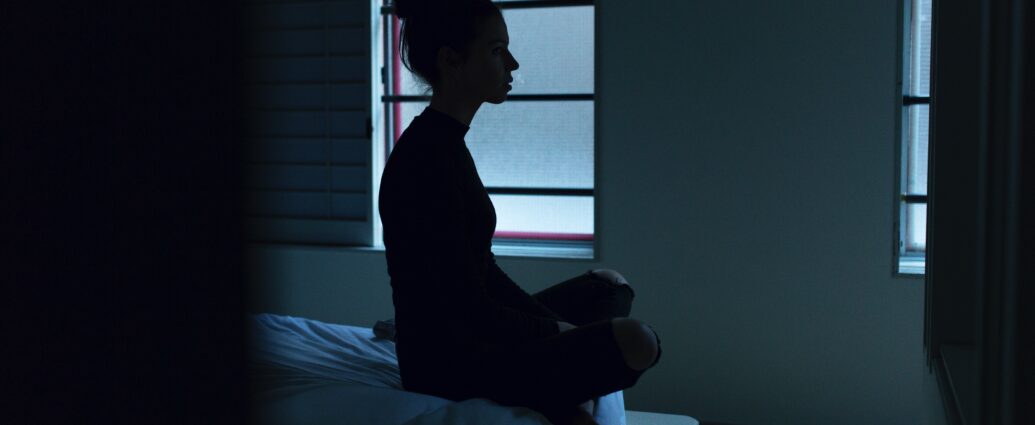Ella Macmillan
In February of 2020, I burst into tears in a doctor’s office, trying to find the words to explain to the kind, comforting nurse that I was so tired I felt like I lacked the energy to even exist. Halfway through my Master’s degree, the stress of intense academic pressure coupled with a rigorous daily routine, financial strain and relationship difficulties had built up, and my ability to sleep collapsed under the weight of the cumulative burden.
This was the first time I’d sought medical help for the recurrent waves of intense sleeplessness I have experienced in adulthood.
Acute insomnia is common – up to a third of British people will experience episodes at some point in their lives – and for me has become a familiar companion, visiting me multiple times annually for weeks at a time.
During these periods, I can sleep for no more than three or four hours a night, despite attempting a wealth of Google-recommended remedies, including attempting a regular bedtime routine, daily exercise, and avoiding falling into the counter-productive trap of devouring caffeine to alleviate the daytime exhaustion.
Each bout of sleeplessness can last a month, meaning that large chunks of my life have been absorbed by the illness, stress, and emotional instability of insomnia.
“My skin broke out in acne, leaving scars still visible now; my hair became thinner, duller; my metabolism slowed – the result, presumably, of my body needing to devote more energy simply to functioning.”
Constant, absolute fatigue takes an immense physical toll. Despite the catalyst for my episodes of sleeplessness being academic stress, when insomnia struck during exam seasons at university, I’d collapse at my desk in the library, ignoring the looks of students around me to rest my head on my arms, unable to continue studying.
This exhaustion was accompanied by physical side-effects I initially failed to identify as being attributable to sleeplessness. My skin broke out in acne, leaving scars still visible now; my hair became thinner, duller; my metabolism slowed – the result, presumably, of my body needing to devote more energy simply to functioning.
More worrying, however, was the emotional impact. Surviving on less than three hours of sleep a night, my brain was entirely befuddled and unable to function effectively. I was tired almost to the point of delirium and could not control my emotional reactions.
One minute I would laugh maniacally, the next I would sob uncontrollably, unable to vocalise or understand the intensity of my feelings. Conversely, my reaction times became zombie-like; my eyes would glaze over upon seeing a friend in the distance, existing in such a haze I could barely react to their presence, let alone feel excited about the prospect of human interaction.
The toxic combination of sleeplessness and stress penetrated all aspects of my life, eating away at personal relationships, my mental health, and my ability to stay on top of my academic work – even though the fear of falling behind was a stressor itself.
Unsurprisingly, insomnia contributed to the breakdown of my last relationship. Instead of sleeping intertwined with my now ex-boyfriend, I would lie perfectly still on the edge of the bed, hoping that a complete lack of physical contact would remove any possible distraction from unconsciousness.
When that tactic failed, I moved to our sofa, sacrificing the intimacy of co-sleeping in a desperate attempt to gain even a fleeting few hours of sleep. My sex drive became entirely non-existent, my body too exhausted to engage in physical activity, and, as an innate introvert, I was simply too tired for any social interaction, even with the human supposedly closest to me, thus loosening our emotional connection.
One night, having slept for less than three hours a night for weeks on end, I sat in front of my laptop at 3am, determined that if I couldn’t sleep I should work, refusing to lose any hours to unproductivity. Staring blankly at my laptop screen, a swell of panic rose within my chest, filling my throat and stealing away my breath.
My heart raced out of control, my hands noticeably shaking, my mind blurring and the room swimming. With my mind weakened and exhausted, I lacked the energy to form rational thought processes or to fight invasive thoughts; the sudden intrusion of a panic attack scared me immensely.
Instead of being understood simply as a state of sleep loss, insomnia is often considered a hyperarousal disorder, meaning that the sufferer has a level of physiological, hormonal arousal that is incompatible with sleep. This hyperarousal is often caused by chronic activation of the stress-response system: studies have found that the hypothalamic-pituitary-adrenal (HPA) axis, which produces the main stress hormone cortisol, is activated in insomnia patients while they attempt sleep. Ironically for insomnia patients, anxiety about sleeping increases stress, in turn exacerbating insomnia symptoms and resulting in a vicious cycle in which sleep is even less likely.
“My mistake was believing that I could remedy my insomnia by simply altering my sleeping conditions…I kept telling myself you don’t need a doctor, you just need to sleep”
My mistake was believing that I could remedy my insomnia by simply altering my sleeping conditions. Though I kept telling myself you don’t need a doctor, you just need to sleep, finally seeking medical advice helped me recognise stress as a condition requiring medical attention.
When the cause of your sleeplessness is psychological, minimising daily stress is critical for improving your sleep quality. I was prescribed sleeping pills and referred to talking therapy; since then, I’ve been able to better manage my insomnia and adopt strategies for reducing my stress levels.
Featured image courtesy of Ben Blennerhassett via Unsplash. Image license found here. No changes were made to this image.

